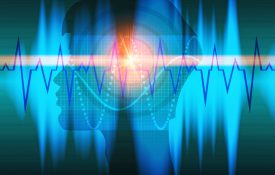-
Women Better at Remembering Faces, Study Finds
US News & World Report: Women are better at remembering faces than men, according to a new study, partly because they spend more time studying facial features without being aware of it. Canadian researchers used eye-tracking technology to monitor where study participants looked -- such as the eyes, nose or mouth -- when they were shown a series of different faces on a computer screen. Each face was given a name that the researchers asked participants to remember.
-
Buzz on Energy Drinks: No Better Than Caffeine
LiveScience: Despite the "special blend" of ingredients, energy drinks work no better than ordinary caffeine at helping us pay attention, a new study suggests. In the study, researchers examined participants' brain activity while they performed a task designed to require attention. Specifically, the researchers looked at how fast the brain responded to a change in letters appearing on a computer screen. Before the task, participants consumed 8 ounces of either water, water with caffeine, or water containing the energy drink 5-Hour Energy.
-

Humans Get the Gist of Complex Sounds
When faced with many different sounds, such as notes in a violin melody, the brain quickly summarizes individual pitches to get an overall gist of what is being heard.
-
Voice-Activated Technology Is Called Safety Risk for Drivers
The New York Times: As concerns have intensified about driver distraction from electronic gadgets, automakers have increasingly introduced voice-activated systems that allow drivers to keep their hands on the wheel and eyes on the road. But a new study says that the most advanced of these systems actually create a different, and worse, safety risk, by taking a driver’s mind, if not eyes, off the road. These systems let drivers use voice commands to dictate a text, send an e-mail and even update a Facebook page. Automakers say the systems not only address safety concerns, but also cater to consumers who increasingly want to stay connected on the Internet while driving.
-
Marriages among those who met online are as stable as others, study says
The Washington Post: Millions of people first met their spouses through online dating. How have those marriages fared compared with those of people who met in more traditional venues? Pretty well, according to a new study. A survey of nearly 20,000 Americans reveals that marriages between people who met online are at least as stable and satisfying as those of couples who first met in the real world —possibly more so. John Cacioppo, a psychologist at the University of Chicago, wondered how online dating has changed American family life. A scientific adviser to eHarmony.com, one of the largest online dating sites, Cacioppo arranged for the company to pay for an online survey.
-
Blood vessels in eye linked with IQ
Zee News: The width of blood vessels in the retina can be a biomarker for brain health, a new study has suggested. Research shows that younger people who score low on intelligence tests, such as IQ, tend to be at higher risk for poorer health and shorter lifespan, but factors like socioeconomic status and health behaviors don`t fully account for the relationship Psychological scientist Idan Shalev of Duke University and colleagues wondered whether intelligence might serve as a marker indicating the health of the brain, and specifically the health of the system of blood vessels that provides oxygen and nutrients to the brain. Read the whole story: Zee News

